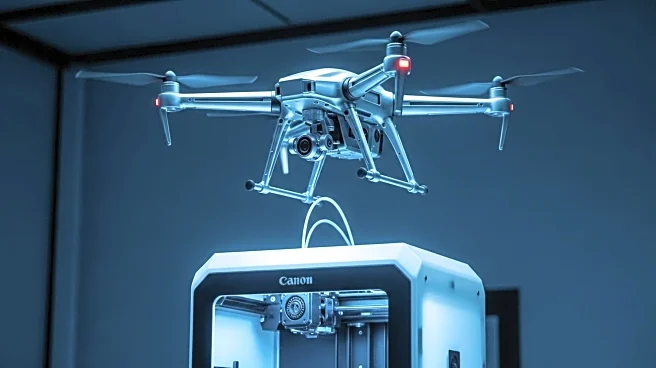What's Happening?
A consortium led by Honeywell has secured £14.1 million in UK government funding to advance aerospace manufacturing through AI and additive manufacturing. The project, part of the ATI Programme, aims to revolutionize the production of critical aerospace components using advanced technologies. Project STRATA will focus on developing innovative components within aircraft systems, enhancing efficiency and reducing emissions. The initiative seeks to support net-zero aerospace manufacturing goals by improving thermal management and fuel consumption. Honeywell is collaborating with industry leaders and academic institutions to drive innovation and sustainability in aerospace manufacturing.
Why It's Important?
The funding for Project STRATA represents a significant investment in the future of aerospace manufacturing, emphasizing the role of AI and 3D printing in driving technological advancements. By focusing on efficiency and sustainability, the project aligns with broader environmental objectives, potentially reducing the aerospace industry's carbon footprint. The initiative also highlights the UK's commitment to maintaining its leadership in aerospace technology, fostering collaboration between industry and academia. The development of advanced manufacturing techniques could lead to cost savings and improved performance for aerospace manufacturers and operators.
What's Next?
As Project STRATA progresses, stakeholders can expect advancements in aerospace component design and manufacturing. The collaboration between Honeywell and its partners may lead to breakthroughs in AI-driven modeling and simulation, accelerating innovation cycles. The project's focus on additive manufacturing could result in faster production times and reduced material waste, benefiting manufacturers and operators. The initiative may also strengthen the UK's aerospace supply chain, reinforcing its global leadership in the sector.
Beyond the Headlines
The integration of AI and 3D printing in aerospace manufacturing raises ethical considerations regarding automation and workforce implications. As technology advances, the industry may face challenges in balancing innovation with job preservation. Additionally, the project's emphasis on sustainability highlights the importance of environmental responsibility in manufacturing processes. The collaboration between industry and academia underscores the value of cross-sector partnerships in driving technological progress.










